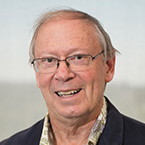
Dr. Adams has made seminal contributions on the genetic basis of cancer development, often together with Dr. Suzanne Cory. Building on their earlier studies of antibody gene rearrangements, they identified the genetic basis of Burkitt’s lymphoma and mouse plasmacytoma by showing that a signature chromosome translocation subjugates the Myc oncogene to an immunoglobulin enhancer, forcing constitutive Myc expression in lymphocytes. They proved its etiological role by showing that transgenic mice bearing the Myc gene linked to an immunoglobulin enhancer contained hyper-proliferative lymphocytes and invariably developed lymphoma. These mice remain one of the best-studied animal models for dissecting tumorigenesis from its outset.
Most importantly, in 1988 their group showed that Bcl-2, a gene that others had found translocated to an immunoglobulin locus in follicular lymphoma, promotes cell survival rather than proliferation. Dr. Adams and close colleagues at the Walter and Eliza Hall Institute of Medical Research have greatly clarified how Bcl-2 and related proteins govern the life and death of cells. Their discoveries have established that this protein family is required for normal development and tissue homeostasis, and that impaired apoptosis is a hallmark of cancer cells and a significant barrier to successful therapy. Their findings have galvanized and guided the development of several promising therapies based upon directly targeting Bcl-2 and its relatives.
Several notable discoveries in molecular genetics marked Dr. Adams’ earlier career. His doctoral studies with Dr. James D. Watson at Harvard (1963-1967) revealed that methionine initiates protein synthesis, while his pioneering mRNA studies with Dr. Frederick Sanger in Cambridge provided the first direct confirmation of the recently elucidated genetic code.
Career Highlights
2014 Macfarlane Burnet Medal, Australian Academy of Sciences
2008 Elected Member, National Academy of Science, Washington, D.C.
2007 Associate Member, European Molecular Biology Organization
1992 Elected Fellow, The Royal Society, London
1986 Elected Fellow, Australian Academy of Sciences
1986 Lemberg Medal, Australian Biochemical Society
1982 David Syme Research Prize in the Natural Sciences, University of Melbourne
1967 PhD, Harvard University